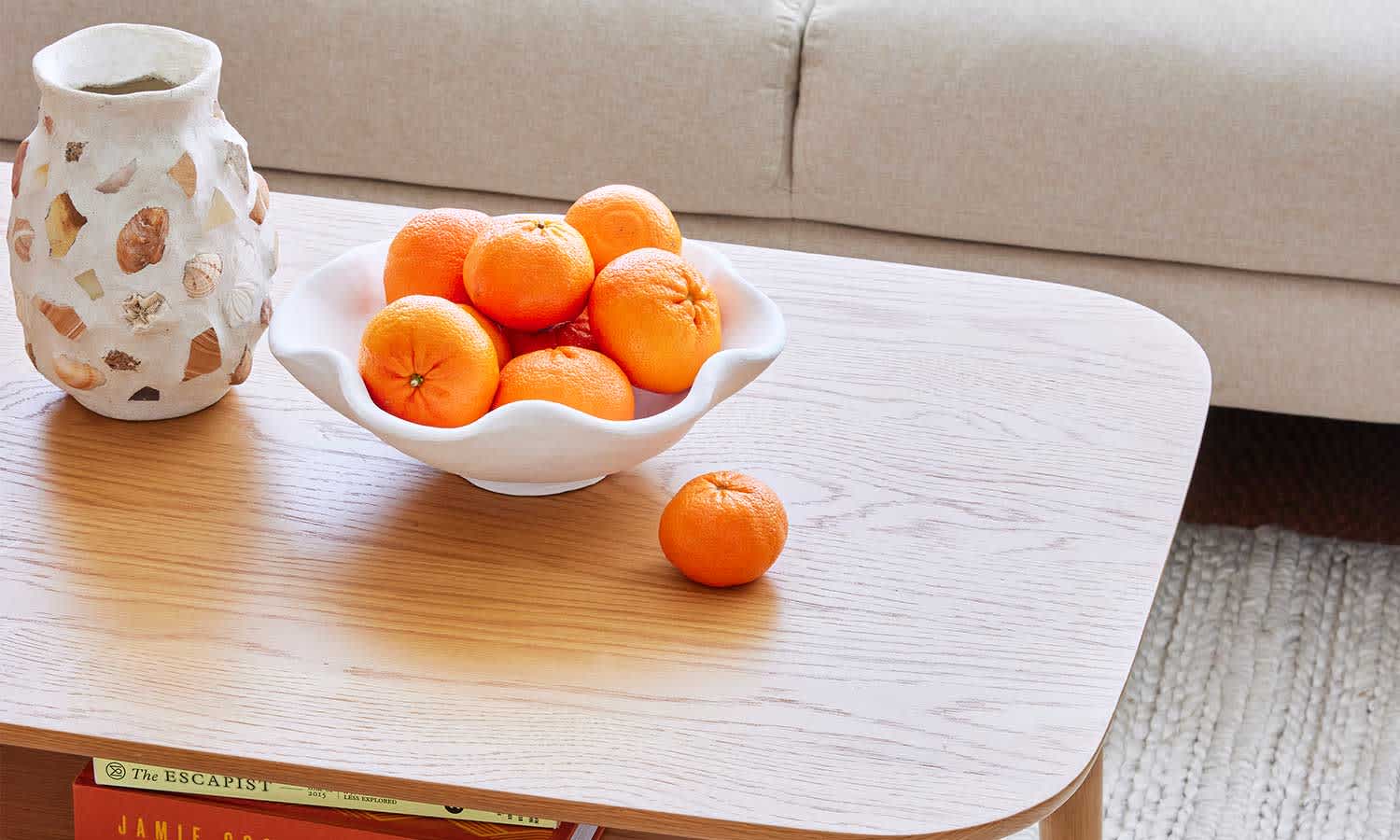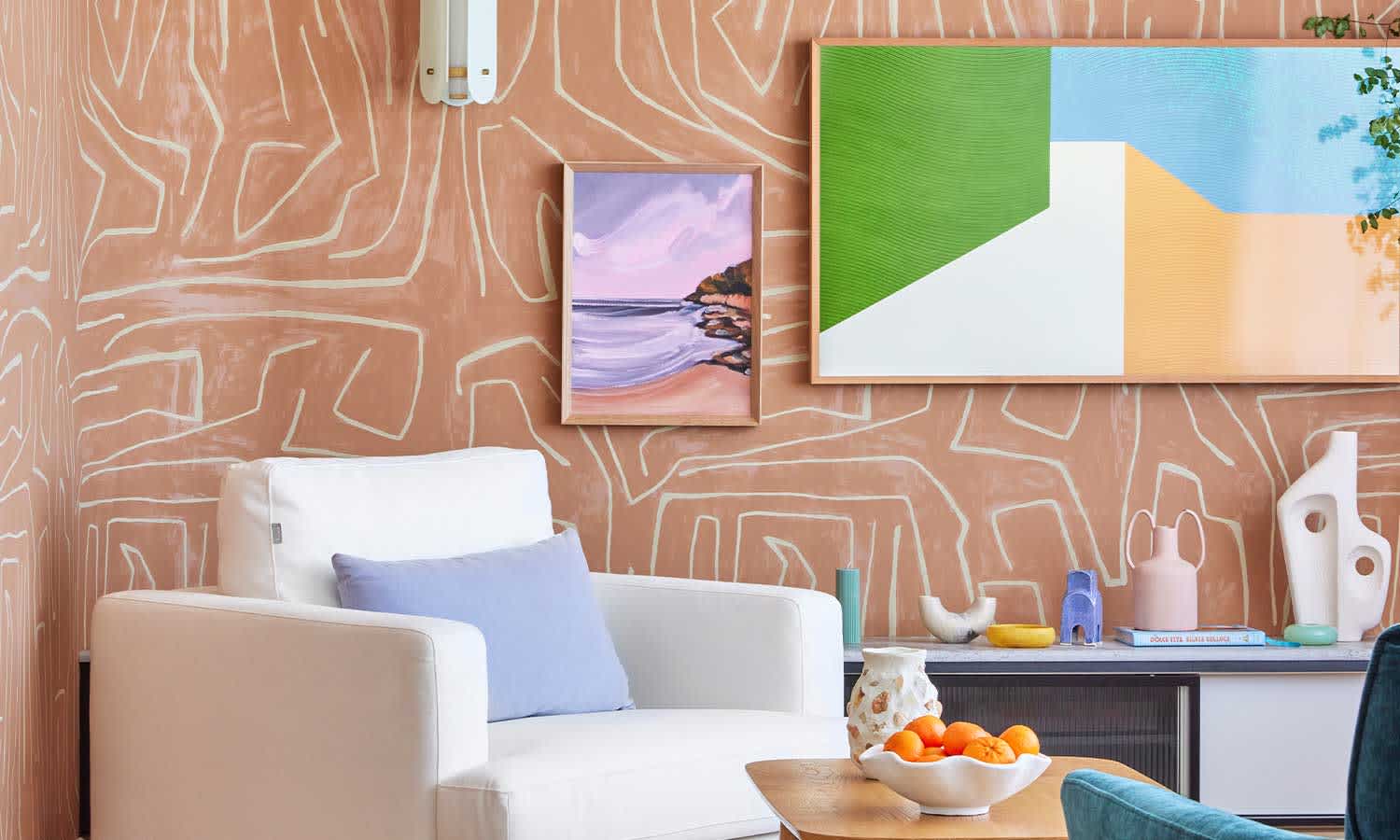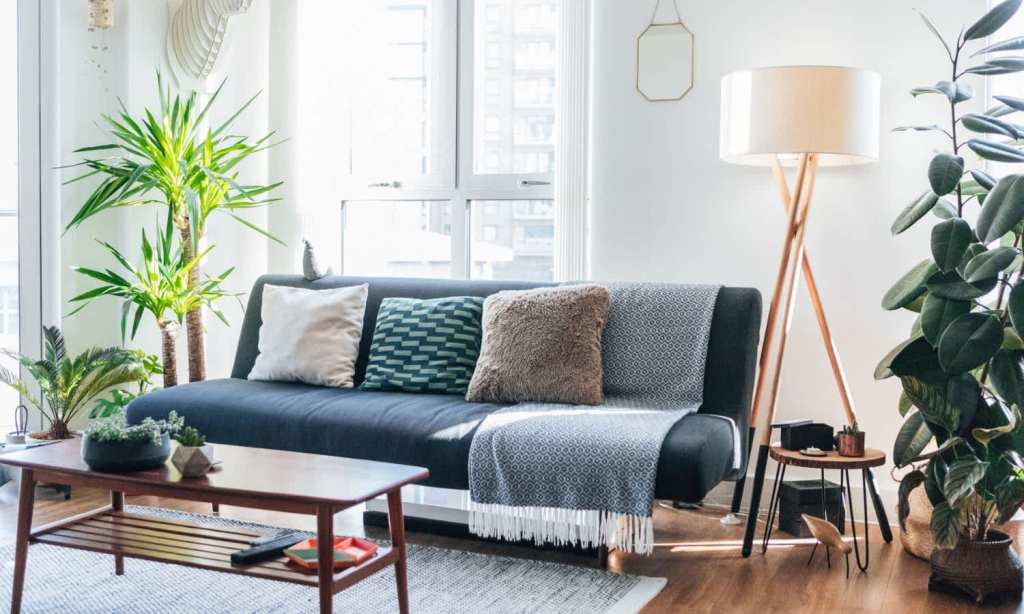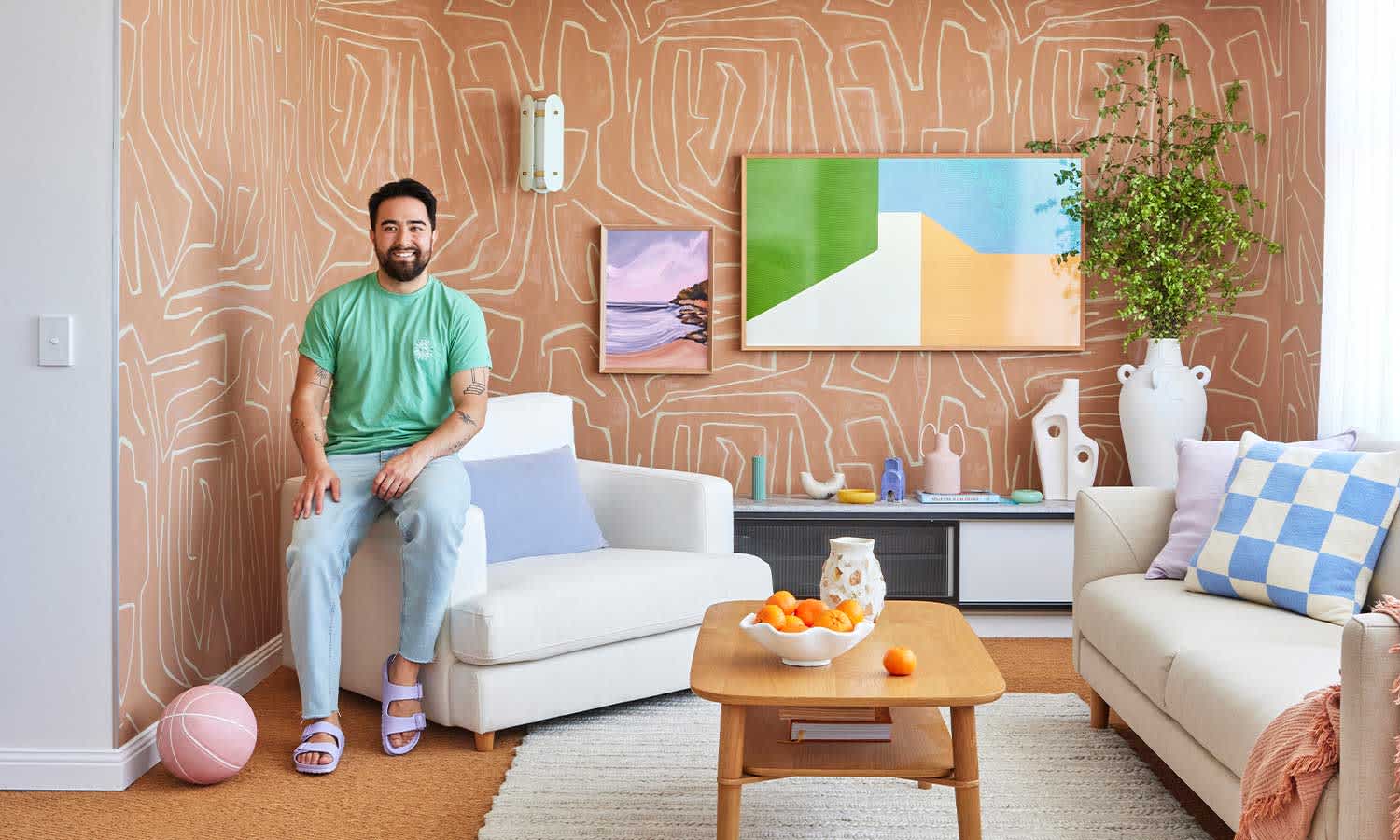You know when you’re scrolling through Instagram and it feels like everyone’s managed to a) buy a sprawling Californian bungalow in Byron Bay and b) style it like it’s straight out of an Architectural Digest spread? Well, you might not have the cliffside deck with sweeping ocean views (or maybe you do — if so, can we come over?), but you absolutely can curate a space that you can’t wait to relax in.
To help us on our quest, we enlisted an interiors spirit guide — Jono Fleming, designer and co-host of podcast House of Style. Fleming spent over a decade in the design industry, from working at top interior design firms to curating the pages of leading Australian home magazines. He knows his stuff, so we picked his brain for some styling tips to find out how we, too, can come home and feel that “ahhh” moment.
Start Simple, Then Build
It’s easy to get excited and buy 14 “similar, but different” artisan couch cushions before, you know, working out what your couch is even going to look like. We’ve all been there, but it’s not exactly a sustainable way to get your house in order.
“If you’re stuck, start with the basics, a simple sofa, a beautiful white vase, some plain cushions, and then you can start to layer and add personality on top of these pieces,” says Fleming.
He suggests using Koala’s Compact Sofa as a starting point. It’s designed to work in smaller spaces and comes in two neutral colourways: creamy Trusty Willow and stone-hued Tucker Bag.
“This sofa ticks lots of boxes for me when looking for furniture for the home or a client,” says Fleming. “It doesn’t sacrifice on comfort and I love the detailing it has on the arms of the sofa. It’s a perfect example of a simple, classic piece of design that can suit pretty much any space.”
Once you have your sofa and your first style additions in place, you can start shopping for those artisan couch cushions — and you’ll be less likely to buy 14 of them, because you know what your space is becoming.
Practical Is Great, But You’ve Got to Like It
Say it with us now – your uni sharehouse days are over. A great way to create a home you don’t love to bits is to plop a bunch of cheap, practical items into it without considering whether you, well, hate them.
“I know it seems like an obvious point but you’d be surprised how often people compromise their own taste to swap things out for a cheaper option or something that will ‘just do’,” says Fleming.
Also, as many of us know (ahem, the couch-off-the-street of 2011), “just do” often turns into “just did it for 6-12 months” — it’s going to be far more sustainable and affordable for you long-term if you invest in your key pieces of furniture because they’ll last longer and you’re less likely to, well, hate them within weeks.
Keep It Tight
If you’re a “curated maximalist” like Fleming, you probably love your knick-knacks. Unless you’re Kim Kardashian (who can forget that all-white-everything home tour), you’ve got that huge rock from a beach in Santorini circa 2009, the four vases you picked up in Turkey, the record player you rarely use (but that looks so GOOD) and other stuff you love seeing on display.
But how do you maintain a stylish home when you can’t bear to part with your million bits and pieces? Well, put them on a roster.
“I am an avid collector of vases, decor and soft furnishings, so the trick is to make sure I edit myself and not have everything out at the same time,” explains Fleming. “I like colour, pattern and texture — but it’s about carefully selecting pieces that work together, not putting everything out at the same time.”
Genius home styling tip, right?

Pack away half your stuff and watch your room come to life. The best bit? You’ll actually see your cherished items, and really appreciate them. Then, in a month or so, you can switch them over.
This is also a great strategy if you have some tiny people who have just learned to walk (and grab everything within their sight) in your home — less clutter means you can showcase a few key items, and you’ll have more out-of-reach places to show them off. Checkmate, toddlers.
Don’t Forget the Power of Art
A well-styled home with bare walls can often feel unfinished. If you’ve got your comfy, neutral sofa and accessorised your space but it still isn’t quite “there”, art could be the answer.
“You don’t have to spend a fortune to bring art into your home, my biggest tip is no matter what, have it framed really nicely,” says Fleming, who has his own art side hustle, Palette by Jono Fleming that sells limited-edition artworks. “You could have the cheapest poster, and having it framed professionally will make it look like a museum piece.”

Professional framing can be expensive — Fleming estimates around $100-$150 depending on the size of your art — but it will mean your prints and photos will last forever, protected from mould and debris.
Art also helps add colour to your home. “If you’re stuck for colours, I like to reference and pick up hues that may be in an existing artwork you own, it’s a good place to start and will help the space feel cohesive,” says Fleming.
Don’t be Afraid of Trends, Just Don’t Let Them Rule Your Life
One of the biggest conversations in sustainability has been trends — and generally, they’ve gotten a pretty bad rap. But trends aren’t the devil — you just need to be wise about them.
It’s worth considering — are you into this trend because it’s a trend? Or because you genuinely love the style?
Next, think about what you eternally love — is it earthy tones? Controlled bohemian chaos? Feeling like you live by the beach?
Once you know how you want your home to feel, you can remind yourself when a trend floats by — and tap into it if it’s still something you want.
What’s on Fleming’s radar? “Soft pastels are really popular,” he says. “Lilac, cornflower blue and butter yellow tones are some of my favourites at the moment. They add punch and personality without being too loud and they’re really easy to pair with neutrals and natural timbers.”
At the end of the day, it’s all in how we perceive trends. “They are there to be suggestions, not rules, you don’t have to buy into every single one,” explains Fleming. When you shift your mindset like this, you’re less likely to be pulled into trends you’ll tire of quickly.
Read more stories from The Latch and subscribe to our email newsletter.








